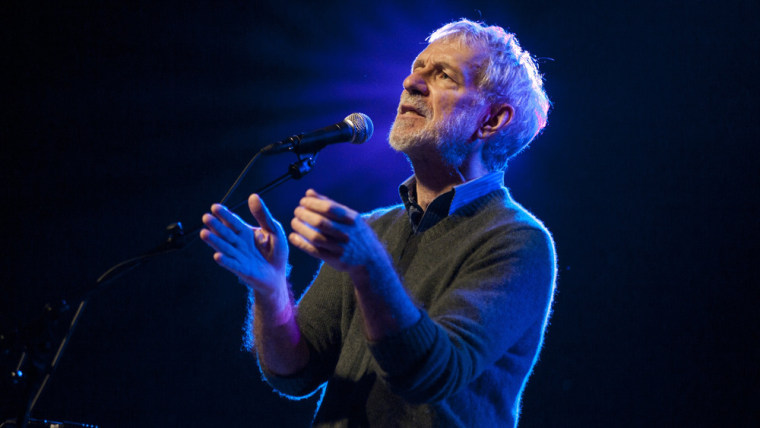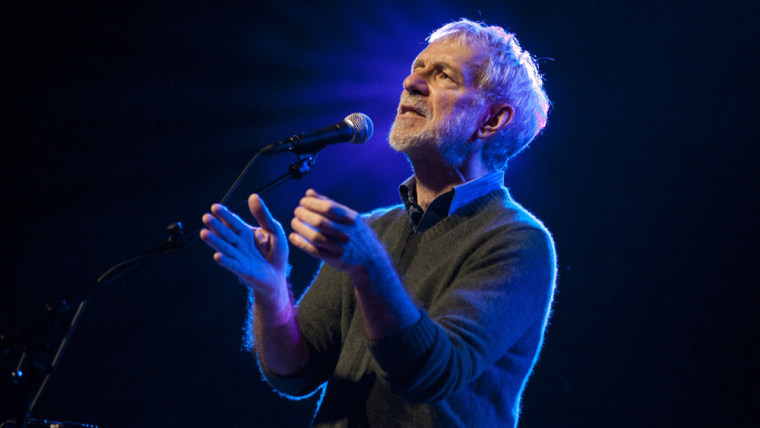Jesse Winchester, the esteemed singer-songwriter who became a symbol of the anti-war movement when he moved to Canada to escape the draft in the Sixties, died Friday from bladder cancer. Winchester, who was living in Virginia when he died, was 69.

While never as well known as peers like James Taylor and Jackson Browne, Winchester wrote some of the defining singer-songwriter tracks of the seventies -- evocations of American and Southern life like "Yankee Lady," "Biloxi," "Mississippi You're on My Mind" and "The Brand New Tennessee Waltz" that ached with feelings of loss for the country he decided he had to leave. The songs gained him a cult following and critical respect, and were covered by everyone from George Strait to Tim Hardin. Winchester was considered such a formidable songwriter that a 2012 tribute album, "Quiet About It," featured versions of his songs by Taylor, Elvis Costello, Jimmy Buffett, Rosanne Cash, Lucinda Williams, and Vince Gill, among others.
Born in Shreveport, Louisiana, in 1944, Winchester started playing music in Memphis, where his family later relocated. In 1967, he received a draft induction letter, but instead of showing up, he took a plane to Montreal. "I was so offended by someone's coming up to me and presuming to tell me who I should kill and what my life was worth," he told Rolling Stone in 1977. He arrived in Canada with only $300 and no connections, but settled into a new life, joining a local band and finally writing his own material.
Also from Rolling Stone: 10 Amazing Backstage Moments From the Rock Hall's 2014 Induction
In 1970, Robbie Robertson of the Band, another Canadian musician, met Winchester in the basement of a monastery in Ottawa. "A friend of mine told me about him, and we went from Montréal, where I was living, to pay him a visit," Robertson says. "He sang me a few songs, and I knew immediately he was the real thing. Great songwriter, with a very moving vocal sound."
Robertson not only hooked Winchester up with the Band's (and Dylan's) manager, Albert Grossman, but produced Winchester's eponymous 1970 debut album, recorded in Toronto. "We had to do it in Canada because he was a conscientious objector to the war in Vietnam and was avoiding the draft," Robertson says. "When the record came out, it was received with open arms, and many recording artists covered his songs. Jesse's music stands up today as good as it did then, and I am so proud to have been a part of it."
Slideshow 49 photos
Curtain Calls 2014
Winchester released several more albums, including 1972's "Third Down, 110 to Go," produced by Todd Rundgren. No matter the producer, Winchester's voice and songs largely remained gentle, thoughtful and restrained. Unfortunately, he couldn't leave the country to tour or promote any of his early albums. "People say, 'Coming to Canada, that must have been a hard decision,'" he told RS. "But that really was the easy part. The hard part comes later, when you start trying to live your life in line with that decision. That's when it gets complicated." Winchester became a Canadian citizen in 1973.
During this period, Winchester's mythic status grew: During one of the Rolling Thunder Revue shows in 1975, Joan Baez dedicated a cover of the folk-pop hit "Please Come to Boston" to Winchester. In 1977, Winchester was pardoned by then-President Jimmy Carter and was finally able to tour America, although he wouldn't move back to the States for another quarter-century.
Winchester continued recording sporadic albums and, about a decade ago, returned to the States; he and his second wife lived in Memphis before finally settling into Charlottesville, Virginia. In 2011, Winchester was diagnosed with cancer of the esophagus, but he beat the disease and eventually mustered the energy to record a new album, "A Reasonable Amount of Trouble." Produced by Mac McAnally, the album will be released this August. But this February, the cancer returned, to his bladder, and Winchester had spent the last week in a hospice.
Although Winchester was keenly aware of his lack of commercial success, he maintained a sense of integrity that proved as influential as his songs. "I didn't want to get into this business of trying to be the top [expletive] or something like that," he told RS in an earlier interview in 1970. "I'd rather just hang in there all the time with good music, slow and steady, and share it, rather than set the world on fire all at once."

